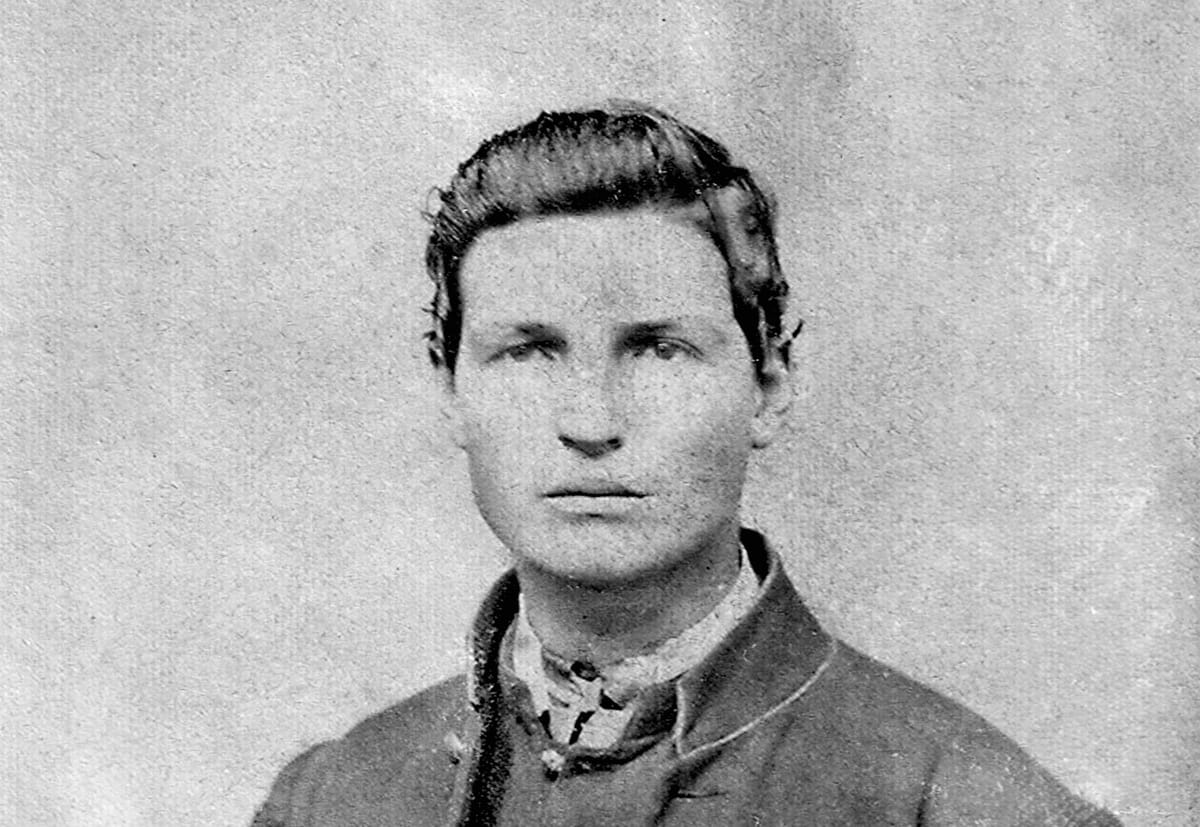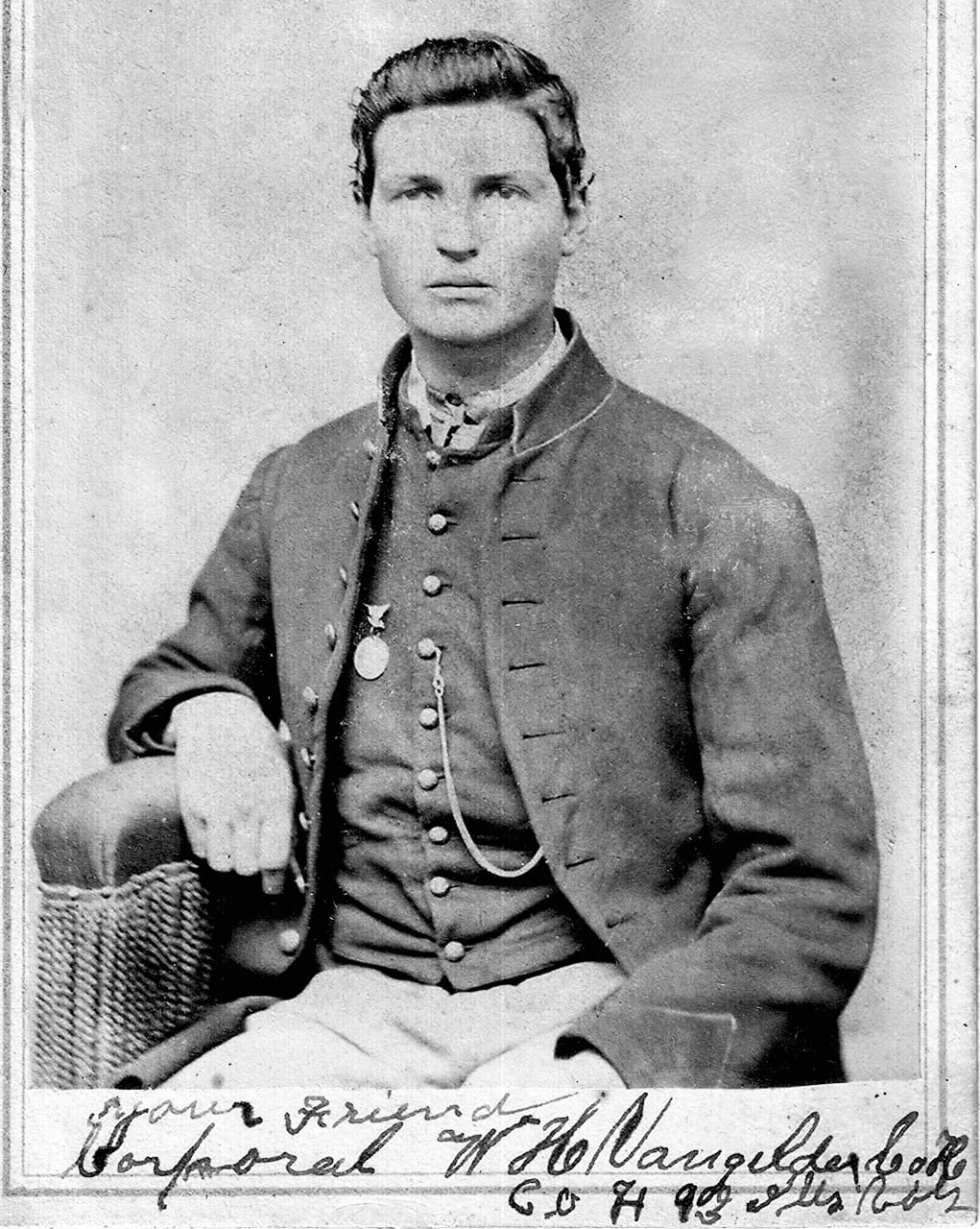Meet Corporal Vangilder
A civil war soldier in the Union Army.

William Howard Vangilder and two of his brothers enlisted in the Union Army on August 14, 1862. They were joined by the 101 other recruits who formed Company H of the 93rd Regiment of the Illinois Volunteer Infantry. The 10 Companies of the Regiment comprised roughly 1,000 men of the 600,000 soldiers called by President Lincoln to the cause of subduing the southern rebels and preserving the union in the US Civil War.
William was 18 years of age; his brothers Morgan and Elijah were 20 and 25. Only William would return to Illinois at the end of the war.
The Vangilder brothers were from Knoxville, Illinois, a small settlement 190 miles southwest of Chicago. The bulk of Company H came from Neponset and Mineral and other small farming settlements in rural Bureau County. Indeed, William's occupation was listed as farmer and it appears most of his comrades had similar backgrounds.
I have an original photograph of William Vangilder sent by him to my great-great grand father. They were comrades-in-arms in Company H. The photograph has been passed down through my family without its story, but it does have a friendly inscription that identifies the subject. I've made use of contemporary sources to piece together a little of the story of the man and the events of the soldier's life he shared with my ancestor.
The likeness of William in the photograph presents a face with a serene aspect, humble, but laced with some sadness. He looks to be about 25 years old, so a few years after the war. The circumstances of his daily life probably did not come with ease or a great amount of comfort; his two brothers lost under gruesome conditions must have weighed heavily on him, and the grisly carnage and loses suffered by the 93rd Illinois Volunteers in its many campaigns certainly could have clouded his days.
The father of the three brothers, Moses Vangilder, a farmer, died in early 1857 when William was 13. Moses left behind his wife and ten children, nine unmarried. Knoxville had a large number of Vangilder relatives living nearby, so the family was probably not without support. When the three brothers enlisted in 1862, they left behind their mother and five siblings. The three youngest were 13, 11 and 6 years old.
The official history of the 93rd Regiment, Illinois Volunteer Infantry, is preserved in a volume of some 450 pages. Each battle is presented in a lurid catalog of violence and gore; the book outlines grand military campaigns and the tactics and strategies from both sides. Mundane movements and statistics were also preserved and the authors did not fail to describe the very human emotions felt and quotidian challenges faced by the soldiers and officers.
Viewed panoramically, the raw statistics of how the 93rd Regiment progressed through the war are breathtaking and almost unimaginable today. The men marched 2,631 miles on foot, traveled 1,703 miles by rail and were embarked on river and sea-going vessels to traverse 2,231 miles.
Of the 101 soldiers in Company H, losses were heavy. Sadly, the statistics are not atypical for this war:
7 killed in battle,
6 wounded in battle and subsequently died,
21 wounded in battle and lived,
2 captured in battle and returned to the unit by some means,
2 missing in battle, died in prison, or were never heard from.
At a regimental level, the statistics are much more grisly. Losses in Company H were relatively light. Of the 1,018 soldiers in the regiment:
24% died in battle,
34% were wounded in battle, and there were
96 deaths from disease.
The abolition of slavery in the Southern States was on everyone's mind, but the declared goal of the war was only to preserve the union of the states by putting down an armed rebellion. Nevertheless, soldiers of the union army knew if they found themselves trapped behind enemy lines, they could seek help in the slave quarters of plantations. The enslaved people would protect them. This is recorded in the regimental history as having occurred several times.
After the war, Vangilder married, had children, moved west and homesteaded in Nebraska. He died at age 64 with six living children.
Vangilder reached out in friendship to my great-great-grandfather with the photograph below in the hope to be remembered and to kindle the feeling of comradeship they once shared in the service. I'm happy I was able to tell his story here and to recognize his service.

